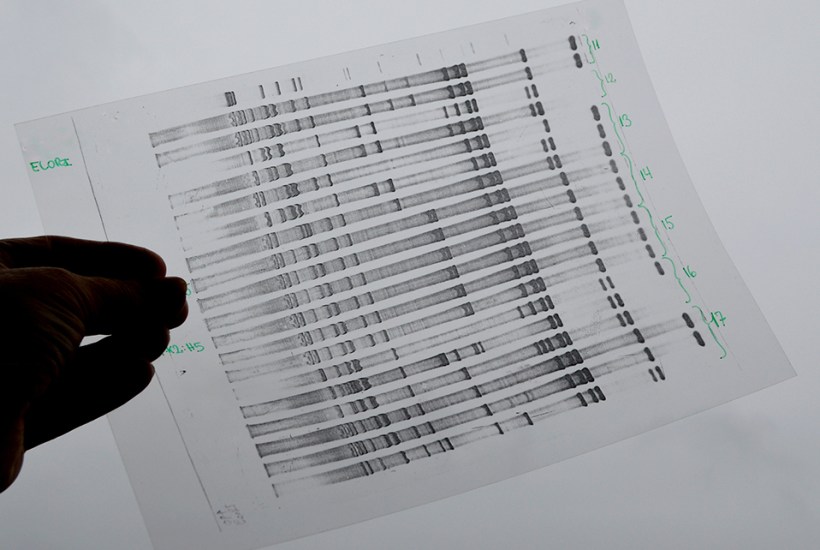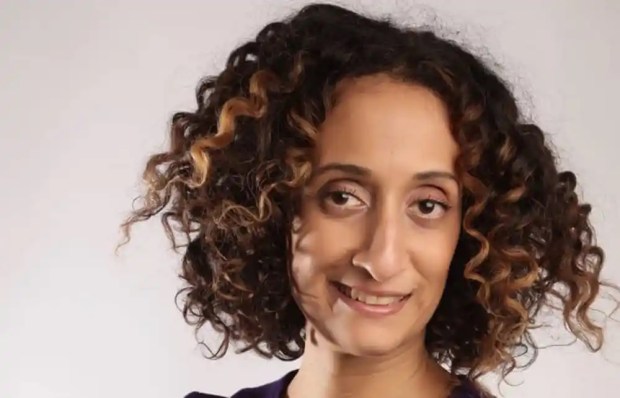I did not enjoy the Christmas festivities this year: I sang no carols, ate no turkey and failed to watch It’s a Wonderful Life. There were two reasons. First, I received my DNA heritage results from a company I’d bunged £100 or so back in the autumn. My family had been greatly looking forward to this event, hoping for a revelation that I was part Igbo or Hausa or, better still, related somehow to the unfriendly pygmies of the western mountains in Papua New Guinea. Meanwhile I was hoping to be 90 per cent English with the remaining 10 per cent Danish, as I have often considered myself to be distantly related to the Viking hero Ragnar Lodbrok, which may account for my political disposition.
So I tapped on the screen with high expectations, family gathered around, and could not have been more appalled if it had been revealed that I was descended from Belgians. I got my wish for some Danish and/or Swedish lineage – about 3 per cent, it said. And there was some English in me too – 20 per cent. The rest, more than three-quarters, was… Scottish. I am almost entirely Scottish. The family howled with mirth while I sat there, checking and re-checking that I hadn’t typed in the wrong name or something, utterly devastated. Hell, I knew there was some Scottish blood on my mother’s side – 87 per cent, as it turned out – but surely not from my dad, whose entire family had lived in County Durham for generations. Yup, Dad was 65 per cent Scottish too.
Imagine how this feels! One moment you are comfortable with the notion of yourself as a decent, solid, industrious Englishman – and then it is revealed that you are, instead, a chippy, grasping, salad-dodging smackhead who is unable to define the term ‘woman’. It is like suddenly finding out, at the age of 62, that you were adopted and your real parents were serial killers. I suppose it explains why, during a hot summer, I totally fail to tan but instead resemble the victim of acute radiation poisoning, suffering cracked and flayed skin, bleeding gums and hair loss. Such a shattering blow to one’s self-esteem and self-worth. The only consolation is that henceforth I shall expect everybody else in England to subsidise me through their taxes, while simultaneously demanding total independence from them.
The second – and if we’re being frank, rather more important – reason Christmas was cancelled was that my wife became seriously ill through a chest infection which developed into pneumonia and pleurisy. She is now, mercifully, well on the road to recovery, but for a while we were terribly worried. This gave me first-hand experience of the chaos and misery afflicting so many people who wish to be admitted to hospital this winter but find themselves stacked in a corridor and, like as not, dying. We are told that this is the consequence of our chronically underfunded NHS but it is plainly not, for the health service in the land of my newly discovered heritage once spent 20 per cent more per capita and is in an even worse state.
No, it is because the NHS does not work. It is bloated with managers with stupid job titles and staffed at the front line level by people who too often treat patients with condescension and contempt, no matter how vibrantly coloured their lanyards. Trying to find somebody who actually knew something proved entirely impossible for six days, during which my wife’s condition deteriorated. The helpline 111 was staggeringly useless in a kind of bovine Soviet manner. Three times we called the emergency services and on the first two occasions the paramedics – who were delightful and sympathetic – ran through their list of algorithms but did not really listen to the stuff which fell outside these algorithms, the important stuff. That is because they have no training to do so.
Algorithms can be a useful mathematical construct but, like averages, their usefulness is finite and they often conceal more than they disclose. The third paramedic was a little better – he had received more training – but it was only when we finally got my wife a doctor’s appointment that a proper diagnosis was made and the correct medication prescribed, more than a week after the onset of the illness. The main job of the paramedics seemed to be to deter us from going to hospital (which was probably wise) and advise us against ever ringing 111, which everybody agreed was hopeless.
It took multiple phone calls to sort out the miscommunication between paramedics, hospital and surgery, and the subsequent paramedics who came out had none of the information acquired by those who had visited previously, so the same trudge through those algorithms was needed every time, as well as three sets of ECG tests despite the repeated insistence that there was nothing whatsoever wrong with her heart. It took a total of three telephone conversations (a run-through those bloody algorithms again) and a personal visit to secure a prescription for antibiotics. Why couldn’t the paramedics carry some with them, or at least have the authority to write a prescription?
As I say, the paramedics were lovely and – just as with nurses – they deserve a pay increase, sure. But they were not the people for the job in hand and our attempts to get an appointment with a doctor took the best part of six days. It is the system which is at fault, that and the culture: the NHS and its staff believe they are perpetually in crisis as the consequence of a spiteful or insouciant government and that they are ceaselessly put-upon guardian angels beset by a clamorous public which should shut up and do as it is told. I drove 17 miles to my nearest hospital on Boxing Day. A large, brightly lit, modern building without an A&E. Inside it was silent and utterly devoid of those most encumbering of people, patients. The receptionist told me they were ‘overwhelmed’.
Got something to add? Join the discussion and comment below.
Get 10 issues for just $10
Subscribe to The Spectator Australia today for the next 10 magazine issues, plus full online access, for just $10.
You might disagree with half of it, but you’ll enjoy reading all of it. Try your first month for free, then just $2 a week for the remainder of your first year.















Comments
Don't miss out
Join the conversation with other Spectator Australia readers. Subscribe to leave a comment.
SUBSCRIBEAlready a subscriber? Log in